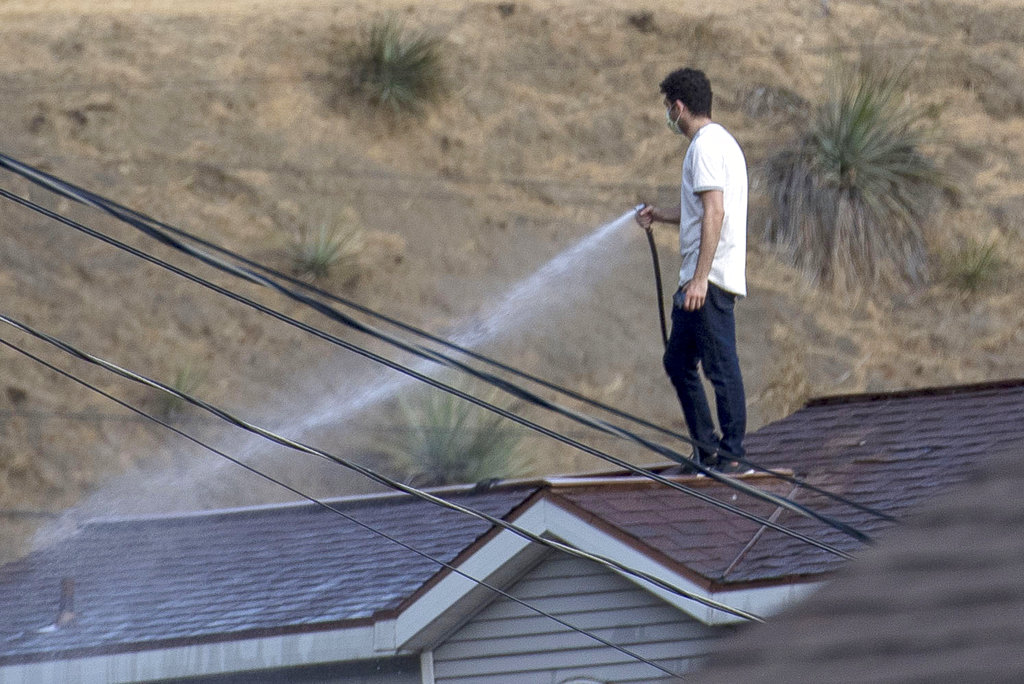SONOMA, Calif. (AP) – Vineyards moved their wine harvest to the cool of night and transit trains slowed for fear that some of the hottest weather in San Francisco Bay Area history would warp rails Saturday, as stifling temperatures and the smoky pall of wildfires marked an unofficial end to summer across the US West.
In Los Angeles, a wildfire just north of downtown had grown to the largest in city history, Mayor Eric Garcetti said. Three structures had burned, at least two of them homes, but fire officials said they were confident they could tame the blaze unless winds picked up.
Wildfires also entered a 2,700-year-old grove of giant sequoia trees near Yosemite National Park and have driven people from their homes in Washington state, Oregon, Montana and other areas struggling with a weeklong heat wave that’s gripped the region.
San Francisco, meanwhile, set a heat record for the day before noon, hitting 94 degrees. By mid-afternoon, it was 101 in the coastal city – hotter than Phoenix. With an all-time high of 106 on Friday, it became just the third time since the 1870s that San Francisco had back-to-back triple-digit days.
Temperatures reached 115 south of the city. It was a rare heat wave at a time of year that San Francisco residents usually call “Fogust’’ for its cloudy chill.
The region was so hot that officials with the Bay Area Rapid Transit system ordered trains to slow down on rails that were exposed to sun, expecting the heat would expand and possibly shift the metal track slightly, spokeswoman Alicia Trost said.
The weekend also broke heat records in wine counties north of San Francisco, where Labor Day for some vineyards marks the start of the busy grape harvest.
“We had been hoping for a mellow season,’’ Kat Doescher, senior winemaker at Madrone Estate Winery outside Sonoma, said shortly after sunrise. She inspected the chardonnay grapes that workers had harvested overnight under lights. “But I look at the forecasts, and I see a heat wave that’s not getting any cooler.’’
Other vineyard managers fretted over how best to soothe and when to pick their own heat-stressed grapes.
In Los Angeles, hundreds of firefighters battled flames that chewed through nearly 8 square miles (20 kilometers) of brush-covered mountains as authorities issued mandatory or voluntary evacuation orders for more than 700 homes in Los Angeles, Burbank and Glendale.
Tourists snapped shots of their planes landing against a backdrop of orange flames in the hills near Hollywood Burbank airport.
Los Angeles resident Tracy Goldman had her car packed in case officials ordered her street to evacuate.


